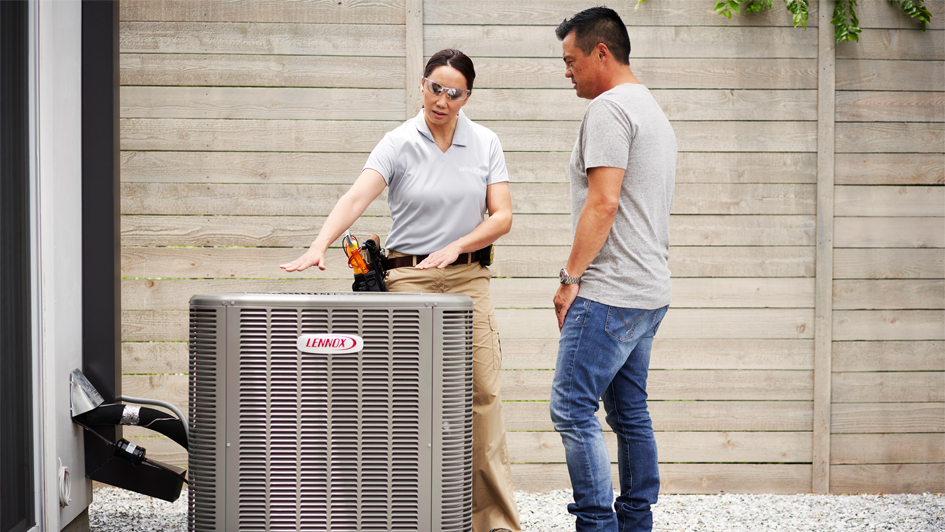
Finding the appropriate HVAC system size for your home is vital. It has a big impact on your ability to enjoy your home and your utility costs. In this HVAC sizing guide, the professionals at Solar Air Inc. will explain how to determine the best size of heating and cooling system for your home, what features they take into account and why selecting the ideal size HVAC is so important to your convenience.
What Impact Does HVAC System Size Make on Home Comfort and Efficiency
Proper HVAC size differs for each home. Your HVAC system needs enough heating and cooling capacity to make your entire home cozy. It shouldn't struggle to keep up in extremely scorching or frigid weather. However, an HVAC system that's too big is inefficient, increases your energy expenses and can cause problems that make your home less enjoyable.
Key Factors Professionals Consider for HVAC Sizing in Fort Lauderdale, FL
To determine the right HVAC system size for a home, the HVAC installation specialists at Solar Air Inc. perform a Manual J load calculation to determine how many British Thermal Units (BTUs) are necessary to heat and cool and the home. A Manual J calculation evaluates several elements, such as:
- Home size: The size of the home is arguably the most important factor in selecting the size of your HVAC system. How much space will your new HVAC system need to heat and cool?
- Insulation levels in the home: A properly insulated home maintains the indoor temperature more efficiently, which can influence how much heating and cooling capacity you need.
- Regional Climate: The local climate in Fort Lauderdale, FL, plays an important role in finding the right size HVAC. Homes in sunnier climates may require a system with a greater cooling capacity, while milder regions may demand less.
- Number of windows: Windows can be a significant source of energy loss. The number, size, type of glass used, and whether they’re single or double paned can greatly affect heating and cooling requirements.
- Sun and shade: A home that receives a substantial sunlight will naturally be warmer than one that doesn't, which impacts central air sizing. Home placement in relation to prevailing winds and number of nearby shade trees also affect the proper HVAC size.
Common HVAC Size Mistakes to Avoid
A common mistake homeowners make when determining the size of their HVAC system is to base their decision on square footage. Although the square footage of your home has a significant impact on what size HVAC you need, other factors also influence how much heating and cooling capacity is necessary to keep your home cozy.
Another typical mistake is not employing a professional. It's vital to have a qualified HVAC technician conduct a Manual J calculation, which takes all the essential factors into consideration to determine the right HVAC size.
What Difference Does HVAC System Size Make?
An inadequately sized system can result in comfort problems and drive up your monthly power bills. Here's a deep dive into the pitfalls of a wrong-sized HVAC:
Undersized HVAC system problems:
- Shorter system life and breakdowns: HVAC systems that don't have enough power often run constantly to strive to maintain the temperature in a home, leading to increased wear and tear. This can cause breakdowns and even require premature HVAC replacement.
- An unpleasant home: Small HVAC systems are too weak to heat and cool your entire living space, which can cause hot, stuffy rooms or areas of your home that are chilly and uncomfortable.
- Higher energy expenses: An underpowered HVAC system that works constantly trying to keep up uses more energy, increasing your monthly power bills and wasting your hard-earned money. A properly sized and energy-efficient HVAC system consumes less energy and helps to reduce your monthly bills.
Problems with HVAC systems that are too big
- Wasted money: Larger HVAC systems typically have a higher purchase price, so purchasing more heating and cooling capacity than your home requires is an unnecessary expense.
- Shorter system life and breakdowns: HVAC systems that are excessively large often cycle on and off, referred to as short cycling. This can cause wear and tear on your equipment, reducing its service life or requiring HVAC repair.
- Humidity issues: An HVAC system should regulate indoor humidity, but an oversized HVAC system may lack adequate runtime to accomplish that task. This can result in indoor air quality issues, and encourage the growth of mildew or mold.
Get the Right HVAC System Size by Working With the Pros at Solar Air Inc.
Now that you have learned some of the aspects of your home that impact what HVAC system size is right for you, it's time to find a new heating and cooling system. Solar Air Inc. is here to help.
We’ll evaluate your home and give you a free, no-obligation estimate for HVAC installation. We’ll assess your home to determine the ideal HVAC system size for you, so you can experience comfort every day of the year.
Call 954-466-0951 today to schedule your free estimate for HVAC installation in Fort Lauderdale, FL.



